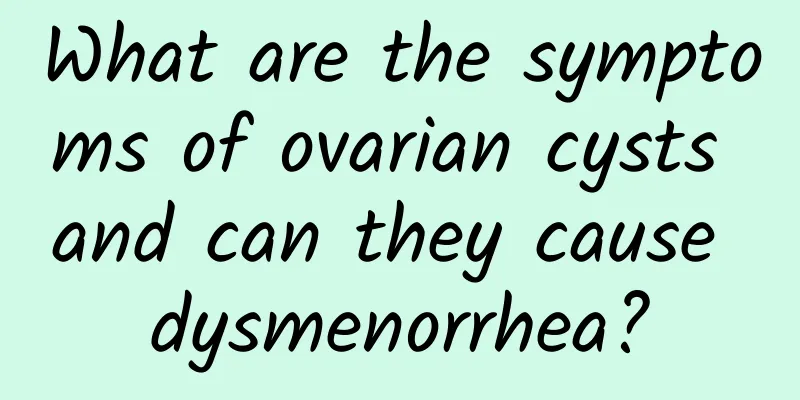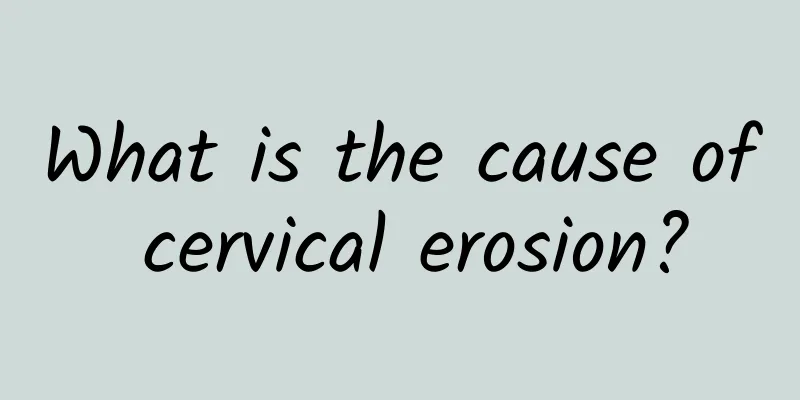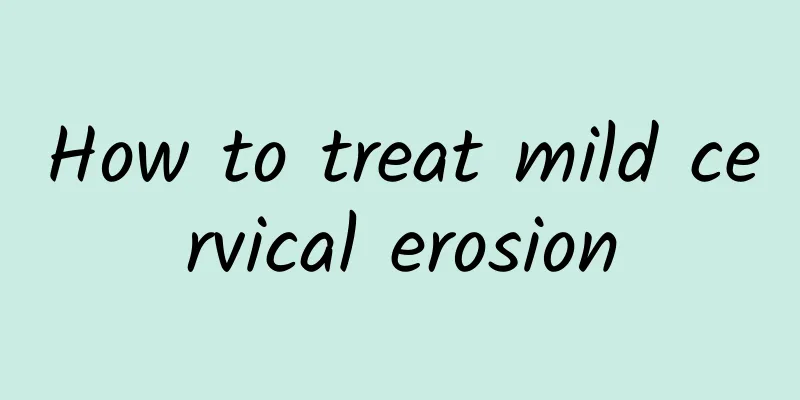What are the symptoms of ovarian cysts and can they cause dysmenorrhea?

|
What are the symptoms of ovarian cysts? Will it cause dysmenorrhea? Symptoms of ovarian cysts include: 1. Abdominal pain: If the tumor has no complications, there is very little pain. Therefore, patients with ovarian tumors feel abdominal pain that occurs suddenly, which is mostly caused by tumor pedicle twisting or tumor rupture, bleeding or infection. In addition, malignant cysts often cause abdominal pain and leg pain. Pain often causes patients to seek emergency treatment. 2. Discomfort in the lower abdomen: This is the initial symptom before the patient feels a mass in the lower abdomen. Due to the weight of the tumor itself, as well as the influence of intestinal peristalsis and changes in body position, the tumor moves in the pelvic cavity, pulling on its pedicle and pelvic infundibulum ligament, causing the patient to have a feeling of distension and heaviness in the lower abdomen or iliac fossa. 3. Increased abdominal circumference and abdominal mass: Patients with ovarian cysts find that their shirts or belts seem tight and small, and then they notice the enlargement of their abdomen, or they feel it occasionally in the morning, so they press their abdomen and find a mass in their abdomen, coupled with abdominal distension and discomfort. 4. If the cyst twists, there will be severe abdominal pain, abdominal distension, difficulty breathing, decreased appetite, nausea and fever. Ovarian cysts are a relatively complex and common gynecological disease, which is caused by endometriosis. The endometrium of mature women is shed once a month, which is menstruation. Ovarian cysts cause extensive adhesions of pelvic organs. Every time menstruation comes, the endometrium that migrates to the ovaries will also bleed. The blood that is discharged again and again cannot be discharged from the body and accumulates in the ovaries to form a cyst. This cyst can grow to a larger size, ranging from a few centimeters to more than ten centimeters in diameter, which is usually called endometriosis. Ovarian cysts can cause women to experience extreme pain during each menstrual period. |
<<: Will uterine fibroids cause abdominal pain?
>>: How to cure chronic pelvic inflammatory disease
Recommend
What are the clinical manifestations of adnexitis?
Adnexitis is a major disease that endangers our h...
Which abortion hospital is best in Beijing?
The rise and development of abortion hospitals in...
How much does a painless abortion cost?
Generally speaking, in China, the cost of painles...
How to deal with irregular menstruation during menopause? What should women pay attention to when they have irregular menstruation?
What should we do if we have irregular menstruati...
How to care after artificial abortion
Artificial abortion, also known as flow, is a con...
How much does it cost to treat premature ovarian failure?
How much does it cost to treat premature ovarian ...
Are hormones the cause of ovarian cysts?
Although the ovaries are small in size, they are ...
Positive, optimistic, confident: the psychology of painless abortion
There are both positive and negative reports on a...
Slimming beauty Ke Lan develops 5 habits to avoid gaining weight again
It is easy to lose weight but difficult to mainta...
What are the basic types of vulvar leukoplakia?
What are the basic types of vulvar leukoplakia? V...
What should you pay attention to after abortion?
Precautions after abortion include many aspects, ...
Eat light tofu and lettuce salad to protect your body
A light summer feast, the lettuce salad in conven...
Treatment options for adenomyosis
Adenomyosis is a common gynecological disease. It...
What are the causes of acute adnexitis?
What are the causes of acute adnexitis? Adnexitis...
Symptoms and treatment of cervicitis
Symptoms and treatments for cervicitis vary from ...









